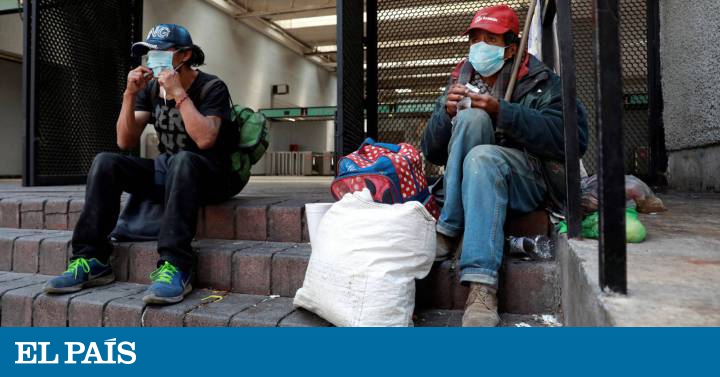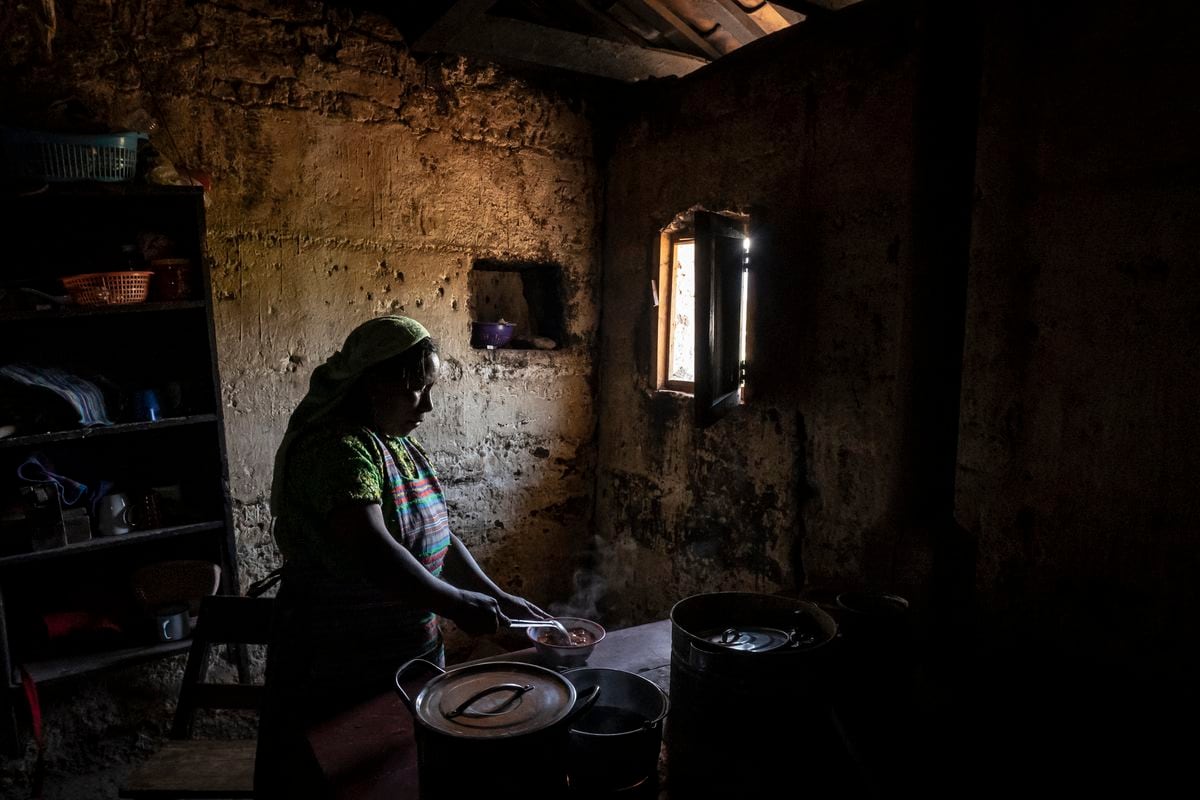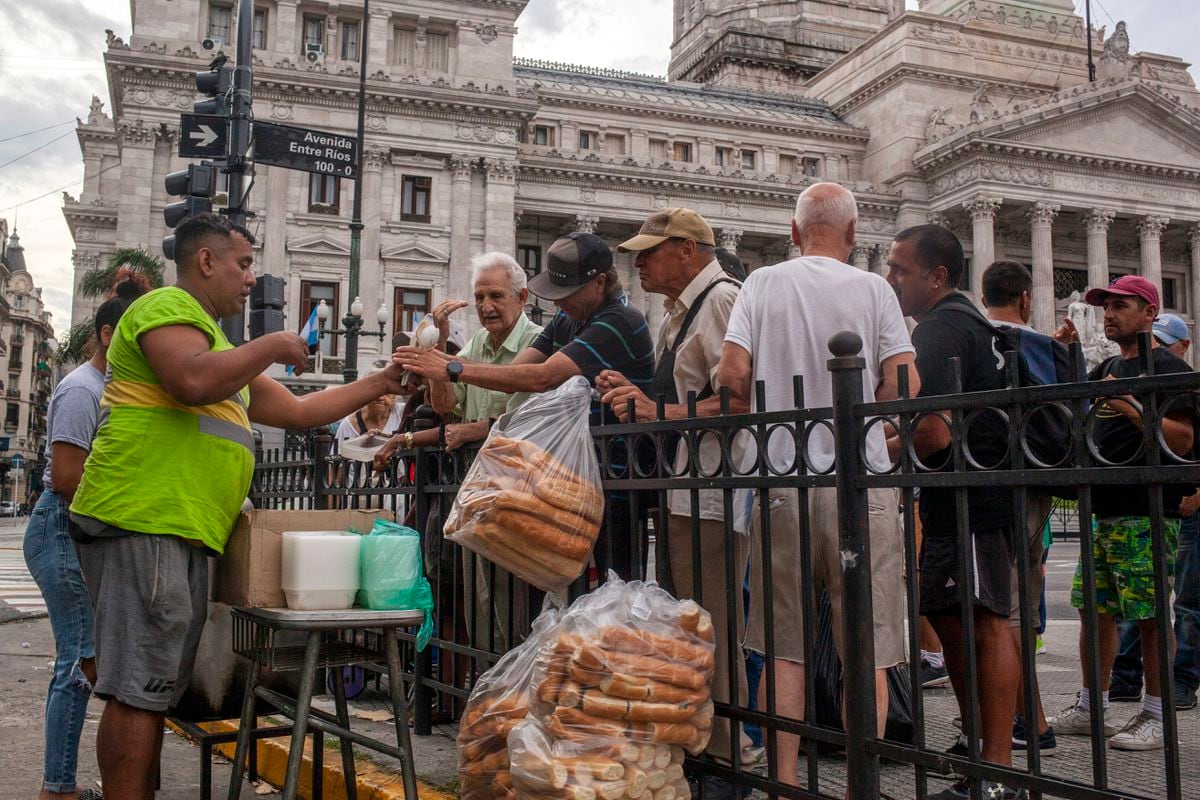We all know that the current health crisis has an economic crisis attached to it. There is talk of a collapse in growth forecasts or a well-known increase in unemployment. An extreme situation that will not affect proportionally all social sectors, but will have a much greater impact on the most vulnerable. This disproportionate affectation will be especially serious in Latin America, since both the coronavirus and the mandatory measures that governments have undertaken to combat it are generating numerous poverty traps; that is, situations in which the very misery of those most in need produces structural dynamics that, as a vicious circle, further deepen their misfortune.
LABOR VULNERABILITY IN THE QUARANTINE
First of all, people below the poverty line face the most difficulties in maintaining, during the health emergency, the already precarious employment status with which they lived before the pandemic. As a general rule, we are talking about families linked to the informal economy who entrust their livelihood to activities that are impracticable under current labor and mobility restrictions: street trade, domestic service in other people's homes… In short, they are people who are used to living a day, on the street, and for which working from home is as useless as it is impossible.
Furthermore, in the unlikely event that their employment allowed remote practice, the limited digital resources available to the poor make teleworking a pipe dream. In its report 'The Opportunities for Digitization in Latin America during Covid-19', ECLAC warns of how "segments that are inherently vulnerable (...) will be excluded from actions taken in the area of work that they use as tools to digital technologies ” . Statistics speak for themselves: in countries like Peru, Bolivia or El Salvador, close to 85% of citizens belonging to the lowest quintile of wealth do not use the internet. For its part, the newspaper 'El Universo' reported that, a week after the suspension of on-site work activities in Ecuador, the number of "teleworkers" was barely 253,000; that is, a select 3.5% of the total workers.
IMMUNITY BEFORE GENERALIST AID MEASURES
Most Latin American governments have undertaken generous financial aid measures. However, the fact that in Latin America poverty is so intimately linked to informal employment, paradoxically, the neediest are the least benefited from some of the most general policies.
Taking the example of Argentina, it seems clear that the prohibition of dismissal for 60 days or the provision of credit to companies for the payment of wages will not have much impact on those workers who operate on the margins of regularity. Similar results will have the postponement of the payment of taxes of the Peruvian or Brazilian companies. All this in a region where, we insist, labor informality amounts to 53% and exceeds 60% in countries especially affected by the pandemic, such as Ecuador or Peru.
SPECIFIC BONDS: TITANIC TASK FOR GOVERNMENT AND CITIZENSHIP
Aware of this situation, governments have developed grant programs specifically aimed at protecting the neediest families during the contingency. An ambitious example is the Peruvian 'Bono 380 Soles', which involves the delivery of the equivalent of $ 105 to nine million citizens dependent on the informal sector. Similar, more or less generous, subsidies are found in Argentina, Brazil, Bolivia, Chile, Colombia, Ecuador or El Salvador. However, precisely the poverty of the target audience makes the mere task of sending them the bonds become a titanic company.
For starters, governments and citizens themselves face the difficulty of identifying the people targeted for aid. Here, the digital divide makes an appearance again, since access and good management of websites is a necessary condition to get key information: first, to know about the existence of hastily created bonds that nobody was familiar with. ; second, to know if you are lucky to be one of the beneficiaries.
In the Argentine case, applicants for the 'Emergency Family Income' have had to apply for help on the Social Security website. In other countries, it is the government that assumes the laborious task of drawing up a closed list of beneficiaries, which does not exempt citizens from having to use the network a posteriori to check whether or not they can collect the bonus. This has generated situations of confusion to which the most critical question has been added: how to collect subsidies in a region where banking among the poor is conspicuous by its absence. It is here that even the best-rated governments during the crisis have failed miserably.
This is the case of El Salvador, which unexpectedly saw its quarantine interrupted on the day of March 29, when thousands of citizens crowded around bank offices. This was due, on the one hand, to the confusion caused by the malfunction of the Government's website, which caused part of the Salvadorans to leave the house only to know whether or not they would receive the aid of $ 300 announced by President Bukele . On the other hand, attending the bank in person was the only way to carry out the transaction for a population among which only 30% of people have a bank account (according to data from Global Findex).
A similar situation was experienced on April 3 in Argentina, a country where only half the population operates with a bank account and whose government had made the mistake of not opening the banks in the previous days of quarantine. When the offices opened that Friday, beneficiaries of the 'Emergency Family Income' program crowded the streets with elderly pensioners and vulnerable women who were beneficiaries of 'Aid for Child or Pregnancy'.
In the case of Colombia, the country has already well-established transfer programs and sophisticated targeting mechanisms that allow it to choose the recipients of aid, in this case the 'Solidarity Income', and to communicate this to them quite effectively. However, the payment of aid and other income such as pensions is largely made through money orders or bank payments that require them to be collected in person, despite the fact that social distancing measures indicate avoiding leaving home.
The same images have been seen in Bolivia or Ecuador, and the truth is that seeing hundreds of poor people crowded together in the midst of a pandemic is, at least, symbolic: it is evident that poverty traps have the ability to protect the most disadvantaged even from the health point of view, increasing your risk level.
Following these experiences, governments are trying to deliver the bonds in the most organized way possible. Thus, common systems such as the Ecuadorian system have been made, through which each individual is assigned a specific day a week in which to go out and carry out the pertinent operations. In any case, it is still a notable challenge to organize the mobility of a population whose resources and training, as we have already argued, do not always allow effective management of information.
As a hopeful reading, it should be borne in mind that the extreme contingency facing the region can serve as a stimulus to come up with imaginative policies that mitigate the structural deficiencies of poverty traps. To begin with, it is urgent to reduce the digital divide, which invites to delve into measures that guarantee free internet access, something that we are already seeing in Bolivia or El Salvador. For its part, financial exclusion is a medium-term challenge that could urgently be alleviated with alternative proposals that minimize the number of people forced to interrupt their confinement; Taking advantage of the fact that the smartphone is the most widespread technological device in the region (several Latin American countries have more active mobile lines than inhabitants, according to data from the SGMA), a possible solution would be the development of apps designed specifically for the collection of bonds, trying to the transaction is carried out in the simplest and most intuitive way possible.
What is certain is that, at least in Latin America, the coming economic crisis cannot be framed as a crash that will affect the entire population equally. More than a month has passed since Alicia Bárcena , ECLAC's executive secretary, predicted that "the most vulnerable groups will bear the weight of the repercussions of the pandemic." It seems that his predictions are already being fulfilled in a region that, on the other hand, was already the most unequal in the world before the arrival of Covid-19.
* Antonio Álvarez García is an assistant researcher in the Latin America Area of the Fundación Alternativas



/cloudfront-eu-central-1.images.arcpublishing.com/prisa/EMYXC3EVHNEG3OJHGIQCB2IVYA.jpg)





/cloudfront-eu-central-1.images.arcpublishing.com/prisa/MYQ5IMFXJZF4NGVYA5PCRZJJCM.JPG)